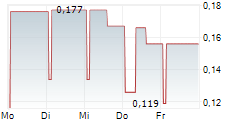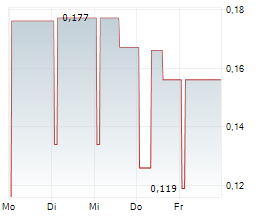Getting the best out of 'Your Precocious Intern' a guiding principle for the responsible use of AI in reporting
In-depth research across the FTSE 350 highlights the need for companies to act now to realise the benefits and mitigate the risks to the financial system
Specialist reporting and advisory firm Falcon Windsor and Insig AI, a technology firm delivering advanced data infrastructure and AI-powered ESG research tools, ('the authors') today publish 'Your Precocious Intern', an in-depth research paper and practical model for the responsible use of AI in corporate reporting.
This report, based on engagement with 40 FTSE companies and analysis of all FTSE 350 reports published from 2020 to 2024 reveals that generative AI use is increasing across UK companies, often without training, policy or oversight. While investors see AI's adoption as inevitable and look forward to the benefits and efficiencies it could bring, they are increasingly concerned about its implications for the truthfulness and authorship of corporate reporting. Practitioners and investors agree that reporting must remain the direct expression of management's opinion and that without guidance, AI use in reporting risks undermining the accuracy, authenticity and accountability that underpin trust in markets.
The growing momentum in the adoption of AI leaves only a short window of opportunity to upskill and prepare to mitigate the risks it represents to the financial system. The report sets out clear recommendations for how companies can bring AI into the reporting process by design, not by accident. At its core is the guiding principle: treat generative AI like a precocious intern: useful, quick, capable, but inexperienced, prone to overconfidence and should never be left unsupervised.
Claire Bodanis, Founder and Director, Falcon Windsor, said: "I'm keen to try anything that will help companies report better, and, used well to support the purpose of reporting, generative AI could certainly do great things. But, if people use it unthinkingly, without proper training or guidelines, it could fatally undermine the accuracy and truthfulness of reporting. I hope this research will prompt the necessary debate!"
Diana Rose, Head of ESG Solutions at Insig AI, said: "The responsible use of AI is intrinsic to Insig AI's purpose and we hope that our collaboration with Falcon Windsor provokes thinking and provides guidance to all those involved in corporate reporting as they consider how to leverage AI tools for future ways of working, without compromising the flow of trusted information."
The full report is here and its four key findings are evidenced below.
KEY FINDINGS
1. USE OF AI IS GROWING BUT MORE TRAINING IS NEEDED TO REAP THE BENEFITS AND MANAGE RISKS
Most of the companies interviewed were investigating generative AI, from ad hoc use of chatbots and testing Microsoft Copilot to very tightly planned and controlled adoption. Only a few, generally larger companies, had formal projects in place for its use, particularly in the finance teams. There was a distinct lack of formal training on how to use generative AI effectively.
The number of FTSE 350 companies mentioning AI in their annual report more than doubled between 2021 and 2024, while the average number of mentions increased fivefold over that period. In 2024, 68% of FTSE 350 companies made some mention of AI in their annual reports (including 76% of the FTSE 100). Not a single report yet refers to generative AI in relation to the reporting process, which suggests we have a window of opportunity to develop a practical model for its use.
2. INVESTORS WANT REASSURANCE ON ACCURACY AND AUTHORSHIP
All focus groups acknowledged the attractiveness of AI to reduce a growing workload driven by changing disclosure requirements. The average length of FTSE annual reports has been increasing over the past decade. Incoming changes to UK and EU sustainability reporting requirements suggest the trend will continue and generative AI could make the reporting process more productive and efficient.
However, they fear the risks. Even assuming that an 'enterprise' version of AI is used and data is securely ringfenced, the interviews uncovered the following concerns:
- All output will end up sounding the same generative AI systems used by companies tend to be based on a limited number of foundational models
- It will appear as though leadership 'can't be bothered' with reporting
- Generative AI will make it easier to 'game the system' by the inclusion of tickbox buzzwords and phrases, especially with the initial analysis of reporting often coming from machines
- Reporting will include poorly sourced information given that generative AI is a 'black box'
While investors are open to the use of generative AI for handling large volumes of information, they are clear that the voice of the report must remain human. They expect the opinions, judgements, and forward-looking narratives to come from management and the Board and not from a machine. The concern is that outsourcing these elements risks weakening the relationship of trust that reporting is meant to build. Investors are also asking companies to state clearly how AI is used in their reporting processes.
3. THERE IS A NARROW WINDOW TO GET IT RIGHT
General usage in producing corporate reporting is still low and most companies are in early stages of AI adoption. This gives companies a crucial opportunity: to introduce AI into reporting processes thoughtfully, with appropriate checks and balances. Acting now allows organisations to reap the benefits of efficiency while ensuring that reporting continues to meet its fundamental purpose: building trust through accurate, clear, and authentic communication.
4. THERE IS SCOPE FOR GUIDANCE FROM THE REGULATOR
The participants do not expect or want more regulation but believe a clear signal from the Financial Reporting Council or the FCA would be welcome. Even a gentle reminder that the use of generative AI does not change companies' and directors' existing duties, but could have a significant effect on how they discharge them. As generative AI becomes more embedded, such reassurance could help companies strike the right balance between innovation and accountability.
RECOMMENDATIONS: THE 'PRECOCIOUS INTERN' MUST BE CAREFULLY MANAGED
'The precocious intern' is bright, capable, and eager but inexperienced and prone to overconfidence. Treating AI like such an intern means checking its work, giving it clear boundaries, and never allowing it to operate unsupervised. Everything about how companies use generative AI in reporting should flow from this mindset.
To make the best use of a new army of precocious interns, the report advocates:
- introducing a formal training programme, with modules for reporting confidential information, requiring people involved in corporate reporting to take part and tracking their participation
- learning, and practising, how to write good prompts, but never forgetting generative AI is trained to respond to a prompt, not to give a truthful answer
- becoming a better reader, so you can properly judge what the output means and whether it will be understood by your audience
And managing disclosure using:
- in the short term, a general statement either as a note up front saying generative AI has not been used or a discussion in the governance report saying it has
- in the longer term, specific disclosure explaining the policy the company has taken to using generative AI in reporting and including a negative statement of use in sections that cover forward-looking information and matters of opinion neither of which are, in the authors' views, appropriate uses of generative AI
Used well, generative AI can support administrative and process-heavy tasks: summarising meetings, cleaning up copy, and helping draft routine disclosures. It's also useful for research, creating visuals and making early-stage edits. But it should not be used for writing opinion-led sections, strategic messaging, CEO letters or forward-looking commentary. It cannot be trusted with final sign-off, nor should it be allowed to work with sensitive data outside secure systems. Companies should ensure training is in place, establish simple governance guidelines, and clearly disclose if and how AI was used in the report to preserve both the integrity of reporting and the trust it is meant to build.
Genesis and methodology
In early 2023, Claire Bodanis, founder and director of Falcon Windsor, realised that the advent of ChatGPT and likely wholesale use of generative AI could raise issues for the accuracy of corporate reporting and for directors' duty under the UK Corporate Governance Code to ensure that reporting is fair, balanced and understandable
Today's research is the latest, most in-depth step in Falcon Windsor's campaign for responsible use of AI in reporting. It was developed over a 15-month period, using Falcon Windsor's insight into corporate reporting and network of investors and companies and Insig AI's database of machine-readable corporate reports and expertise in analysis using AI. The authors designed the research plan with input from Imperial College, London and the UK's Chartered Governance Institute and carried out:
- A quantitative review led by Insig AI of over 21,000 corporate documents, looking at what FTSE 350 companies are saying about how they are using AI across annual reports and related material published on their corporate websites.
- A qualitative review led by Falcon Windsor of the views expressed in 12 focus groups of five institutional investors, one proxy agency and representatives of 40 companies (including 20 FTSE 100s).
NOTES TO EDITORS
About Falcon Windsor
Founded in 2004 by Claire Bodanis, Falcon Windsor is a team of 30+ independent experts committed to helping companies small and large, private and listed, produce truthful, accurate, readable reports that their investors and other stakeholders believe because they tell an honest, engaging story.
We love sharing our expertise through our book, webinars, conference appearances and through working with regulators, and people from every aspect of company life.
About Insig AI
Founded in 2018 and listed on AIM, Insig AI plc is a UK-based technology company specialising in data infrastructure and AI-powered ESG solutions. With deep expertise across data engineering, machine learning, and sustainability, we help organisations turn complex, unstructured information into decision-ready intelligence.
Our solutions bring together two core capabilities:
- Data solutions that ingest, structure, and connect large-scale datasets making them machine-readable, AI-ready, and enabling advanced analytics and efficient access to high-quality data.
- ESG research tools that support powerful intelligent search, benchmarking, and analysis of corporate reports built on transparent, traceable data you can trust.
We work with investors, corporates, and consultants to enable smarter decisions across finance, ESG, and beyond.
View source version on businesswire.com: https://www.businesswire.com/news/home/20250506886530/en/
Contacts:
For further information about the report or to talk to its authors, please contact:
Sodali Co
Maria Zander +44 (0)7399 464 415



